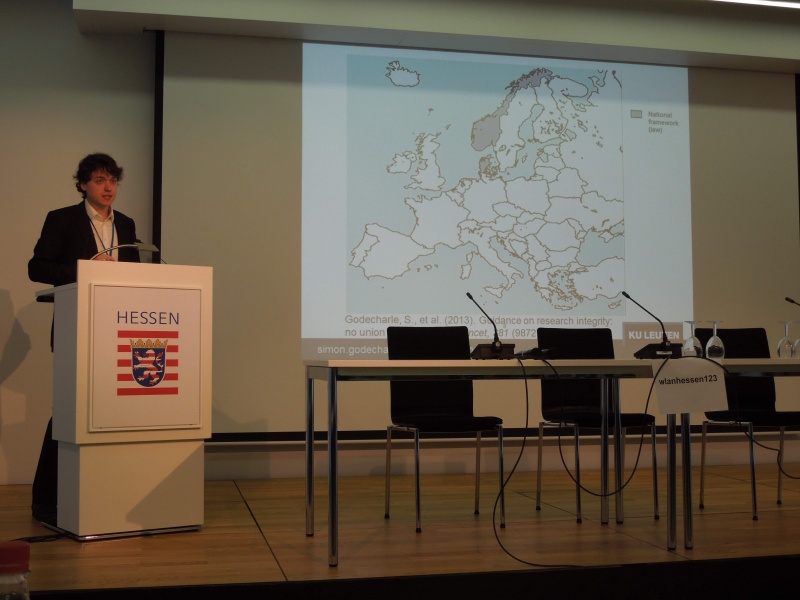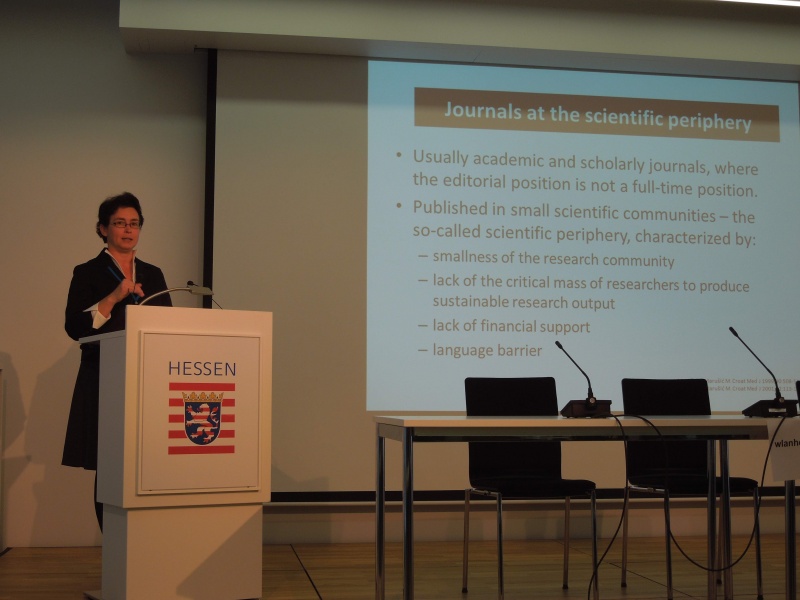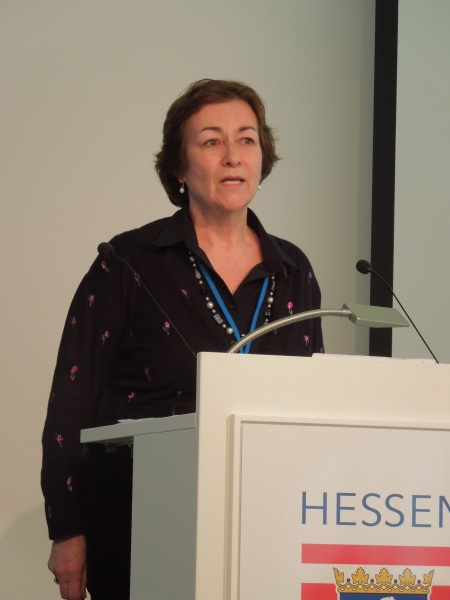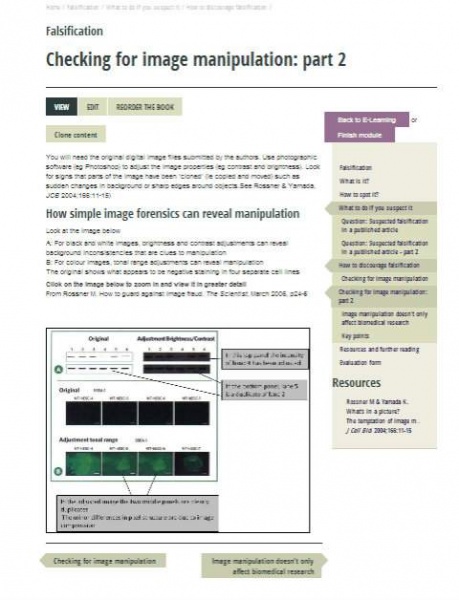2014 COPE European Seminar
The 2014 COPE European Seminar was held on Friday 14 March 2014 at the Representation of the State of Hessen to the European Union, Brussels, Belgium, the first time the European seminar has been held outside the UK. The theme of the seminar was "European perspectives on publication ethics".
A report on the COPE European Seminar by Mijam Curno (COPE Council) can be downloaded here.
Stephanie Harriman (BioMed Central), posted a report on the seminar on the BioMed Central blog site, here.
All presentations from the meeting are available to download here. Videos of the presentations will be available shortly.

Ginny Barbour, COPE chair, addressing delegates at the COPE European seminar

Simon Godecharle, University of Leuven, Belgium, discussed guidance on research and
publication ethics in Europe

Professor Ana Marusic, University of Split School of Medicine, Croatia, and Editor in Chief of
Journal of Global Health, outlined differences in publication ethics in Central and Eastern Europe
The Times Higher Education reported on former council member Irene Hames’s presentation on the COPE case taxonomy, at the Brussels meeting
http://www.timeshighereducation.co.uk/news/researchers-seek-more-advice-on-retractions-and-peer-review/2012150.article

Dr Irene Hames, Editorial and Publishing Consultant, York, UK and former
COPE Council member, explains the new COPE Case Taxonomy
Scholarship recipients
COPE awarded two travel grants to attend the COPE seminar. Dr Parasuraman, Chief Editor of Journal of Young Pharmacist, reported on his experience of attending the seminar. The report can be downloaded here.
COPE Council elections
We have two vacancies on Council and we are seeking nominations. These are voluntary positions. Full details can be found on the website. The closing date for applications is 21 April 2014.
New COPE discussion document
COPE has published a new discussion document on 'Sharing of information among editors-in-chief regarding possible misconduct'. This guidance has been drafted following a COPE Discussion Forum, in the wake of a number of high profile cases of research misconduct in which the sharing of information between the relevant editors-in-chief was crucial to the final settlement of the cases. We encourage journal editors and publishers to comment (whether or not they are COPE members), and also welcome comments from researchers/authors and academic institutions. Please email all comments to Natalie Ridgeway, COPE Operations Manager here.
COPE Australian seminar 2014
Registration is now open for the COPE Australian seminar, which will take place on Monday 23 June 2014, at Karstens Melbourne Conference Rooms, 123 Queen Street Melbourne, Victoria, Australia. For details and to register see here.
COPE North American seminar 2014
COPE is delighted to announce our 5th North American seminar, which will be held in collaboration with ISMTE (International Society of Managing & Technical Editors), on Wednesday 13 August 2014 at the Hyatt Regency Philadelphia at Penn's Landing, Philadelphia, Pennsylvania, USA. The theme of the COPE seminar will be centred around 'new technologies and behaviours for identifying publication ethics issues'. For more details and to register, see here.
 Publication and research ethics has been very topical over the past few weeks. Thus the news section is wide ranging. It includes guidance about clinical research, management affecting ethics committee opinions, as well as the never ending issues of plagiarism, concerns about data fabrication and retractions. Risks faced by whistleblowers also has a mention and useful tips for ethical publishing are given.
Publication and research ethics has been very topical over the past few weeks. Thus the news section is wide ranging. It includes guidance about clinical research, management affecting ethics committee opinions, as well as the never ending issues of plagiarism, concerns about data fabrication and retractions. Risks faced by whistleblowers also has a mention and useful tips for ethical publishing are given.

 Retraction by
Retraction by 




